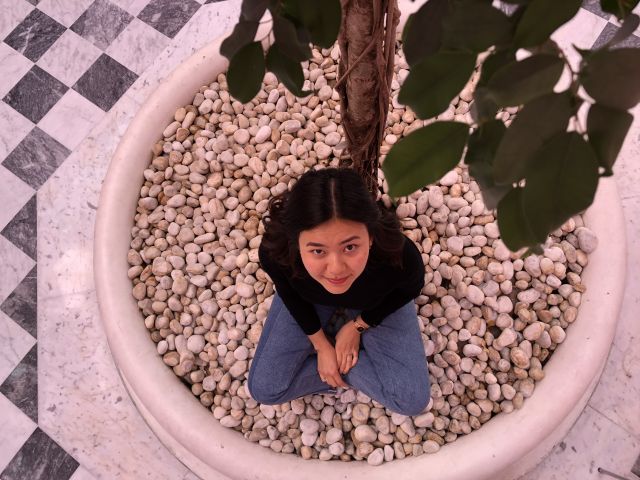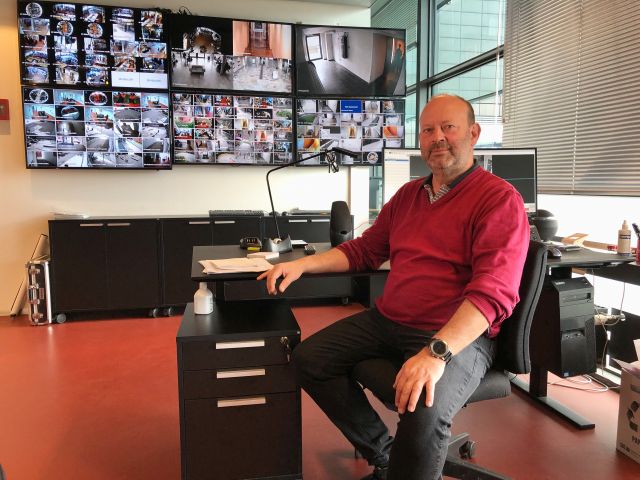How to fool your brain while studying

Hello spring and Easter holidays! A welcome break.
When you’re about to finish a huge chapter in your life, such as uni, you push extra hard to finish on time.
At least this has been my main priority for quite some time. And even though procrastination crawls up like the snake in that story about Eve and Adam, sometimes you simply have to search ‘How to study more efficiently’ or ‘How to focus on studying’ or whatever sentence comes to mind in the middle of the night when reading or writing doesn’t go as smoothly as expected.
I won’t be the first student who’s had a debate with themselves about hard work and YOLO (You Only Live Once).
When your brain starts thinking about the meaning of life and all those billionaires who succeeded without higher education or finishing high school. The desire to procrastinate sometimes takes me to ridiculous places. I admit it’s no fun sometimes and I seriously think about my sanity.
There were a couple of times I had a really hard time reading an article I had zero interest in. It was full of statistical data about standard deviation and betas and I was just so bored that my brain led me to think about an apocalypse. I thought: Who would care about regression analysis if we were attacked by zombies?
I won’t be the first student who’s had a debate with themselves about hard work and YOLO (You Only Live Once)
Realizing that first aid was something I knew more about than what affects regression, I went to YouTube and 20 minutes later I found out the number of different ways a woman can give birth. You might laugh and find it extreme. And I agree – but what can I do about my imagination and professional procrastination habit?!
During the years of taking a bachelor then a master and something in-between, I tried many tricks. Here are some that work for me and maybe you can give them a try, considering that if you’re reading this you might need as much help as me to get started.
Sometimes it was so easy that I would just take the role of a mother and say, “Go study, child” and be strict with myself. No phone nearby and no thoughts of doing something that would disturb my study mood. Sometimes it worked sometimes it didn’t. Other times I imagined that this is a job and I must deliver to my ‘boss’, aka my future self, who would be grateful before the exam.
Go study, child
Do you also get distracted if you listen to good music while reading? I start enjoying the song with my body and completely lose myself in the lyrics. I found two solutions to this. Either I have headsets on with no music, which is weird but for some reason it works. At least people around you won’t talk to you randomly because they think you can’t hear them.
It also helps my brain to think that I’m listening to music but in reality, I’m listening to what I’m reading and processing the text. Another method is to listen to classical music. I usually find a playlist with etudes of Czerny, which are usually compositions that set a speed for me for faster reading. At the same time, it isn’t slow instrumental music that puts me in sleepy mode.
Another weird way of using music is to listen to a song on repeat. It works in a way that you enjoy the lyrics and music on the first couple of rounds, but then your brain stops registering the sounds and it just gives you that right tempo for focus.
You’ve probably heard about the Pomodoro method where you focus for 20 minutes and then take a five-minute break. I found this free app called ‘Flow Timer’, a nice timer for your focus and break periods. Sometimes it works wonders; sometimes it has no effect on me at all.
Who would care about regression analysis if we were attacked by zombies?
I play around with timer and choose weird time periods for focus, which goes like this: I start the timer at 4:34 and I’ll stop it at 4:48 without calculating how many minutes in total I’ll spend studying. When I reach 4:48, I usually evaluate how badly I wanted the time to reach the end and if it was easy then I extend it until 4:57.
If I couldn’t keep my butt on the chair then I extend it for another two minutes maximum. Usually I get more out of it this way because then my brain doesn’t even try to calculate how much time is left, compared to the Pomodoro Timer where I know exactly how much time is left. My brain likes these little guessing games, so I need to find ways to trick it.
I also notice that if I’m chewing gum or eating candy while reading or thinking about how to structure my writing, it’s smoother and more structured. Sometimes I feel like a cow on a green field chewing grass… But hey, if it works, it doesn’t matter. Moo to that!





































































































































Comments